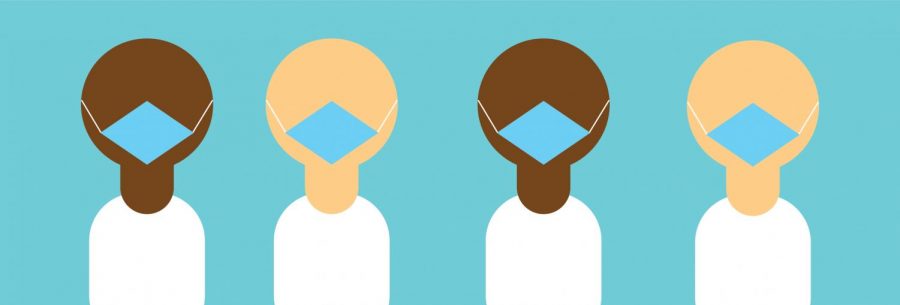COVID-19 influences students’ decisions to major in health industry
Sep 14, 2021
During the summer going into her senior year of high school, Vama Naik, freshman in ACES, decided that she wanted to go into nutrition. At this time, the effects of COVID-19 were increasingly apparent to her, and she decided to pursue a field of study where she could play an active role in the health and well-being of others.
“I saw the great negative impact that COVID was having on low-income people in my local community and the Chicagoland area in general,” Naik said. “I knew that in the future when I could be a medical professional in the aftermath of COVID, I could aid individuals who were devastated by the pandemic by providing widespread nutrition education and community care, in order to prevent such devastation and poverty we saw during COVID.”
Naik, like many others, is not alone in her drive to pursue a career in health care after seeing the impact of COVID-19. This phenomenon is referred to as “The Fauci Effect,” or the increase of applications for medical school and health care programs.
This effect has been apparent at a national level but is also visible in University applications. There appears to be an upward trend of students pursing majors in health fields since the COVID-19 pandemic began, Amelia Mays Woods, associate dean for faculty affairs in Applied Health Sciences, said.
In AHS, the overall enrollment has increased from 2,014 students in fall 2020 to 2,131 students in fall 2021, Woods said.
Get The Daily Illini in your inbox!
“Students saw the value of health experts’ contributions throughout the pandemic,” Woods said. “Health experts were highlighted in the media like never before. I think that some students who might not have considered a career in the health field have come to see the health professionals’ important contributions to society.”
Woods predicts that the University will continue to see an upward trend in students choosing health care majors.
Ish Gupta, senior in Business, has recently made the decision to pursue a career in medicine following a summer internship in consulting.
“I was inspired by my doctors and COVID patients to leave corporate and pursue a career in medicine instead,” Gupta said. “I do believe COVID has inspired many students to pursue medicine. I believe that those that are switching are going to be the very best doctors because they’ve proven that they are not in it for the money or fame. They simply want to help solve the worldwide crisis and address the huge demand for primary care physicians.”
Some students pursuing careers in medicine and health care report they have an urge to go into the field to help communities and individuals at a disadvantage. After seeing the impacts of COVID-19, more representation and access is needed, Naik said.
“During this pandemic, African American, Hispanic and Native American communities have been hit the hardest,” Naik said. “It is important to give justice to people in these groups during COVID and post-COVID, and with the medical field having a long way to in terms of being representative of all racial and ethnic groups. A lot of work must be done to repair the social disparities within the healthcare field.”
An increase in equality for these groups and individuals in the country is also another issue that needs to be addressed for the next generation of health care providers, Gupta said.
“I believe in equality for all patients, and I want to be part of a bigger change within the health care system,” Gupta said.
As students take courses and begin having hands-on experiences, they continue to discover why they’ve chosen their major.
“I don’t think there is one true reason to be a medical professional, but I think it is of more importance that students find their ‘why’ when thinking about pursuing a career in the medical field,” Naik said. “I found my ‘why’ in the experiences I’ve had and the people who have inspired me along the way, and I hope I gain even more of those insights as a student at UIUC.”






